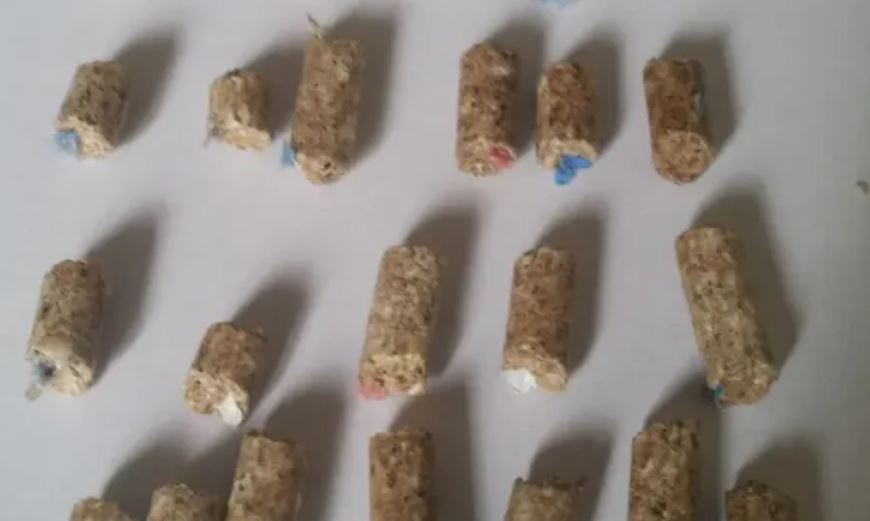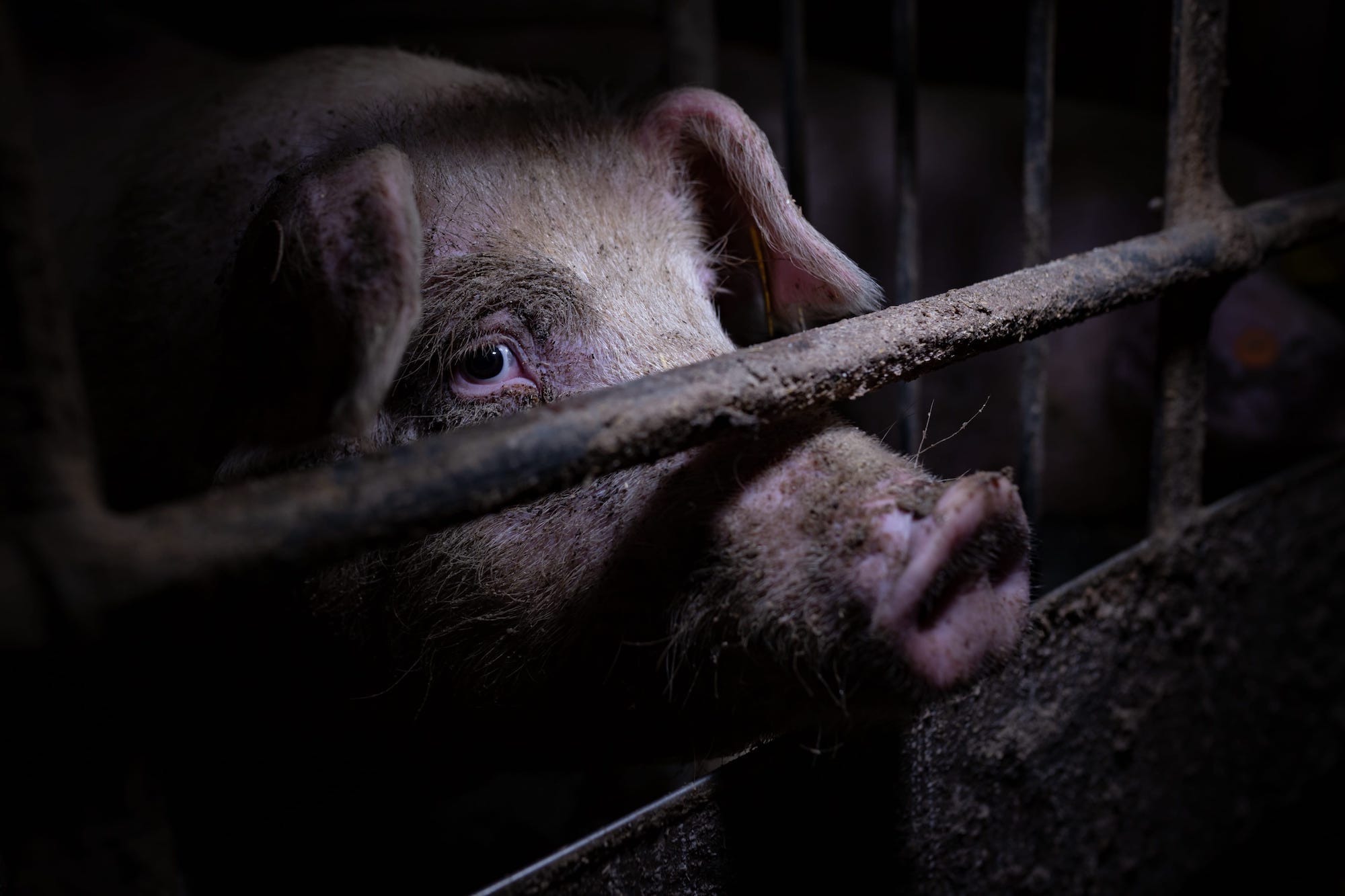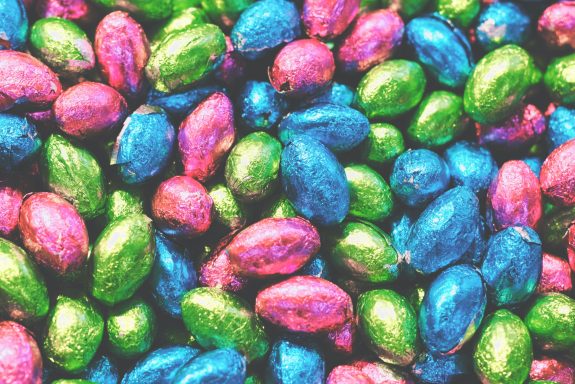Just about every aspect of life for pigs on intensive factory farms is far removed from any semblance of their natural existence, including the food they eat. In recent years, viral news stories have shined a light on the diets used to grow animals as quickly and cheaply as possible. A truck spilling loose Skittles on a highway and plastic-wrapped surplus bread being ground up at a grain elevator have resulted in outrage and concern over what is being fed to animals in the US. Canada’s regulations allow similar practices here.
Schedules IV and V of the Feeds Regulations provide insight into what farmers are allowed to feed animals in Canada. Pigs are naturally supposed to eat a low-sugar diet, but candy, Jell-O, chocolate bars, and Kool-Aid powder can be obtained from food processors and fed to pigs. Farmers may use surplus candy, such as leftover seasonal treats, to fatten up baby pigs before they reach slaughter age at approximately six months old. And milk chocolate can be used as a cheap replacement for dietary lactose, allowing nursery pigs to be weaned from their mother as early as possible so she can be impregnated again.
Like in the US, Canadian farmers can also feed “bakery meal” to pigs, which is a mixture of surplus bread, cakes, dough, tarts or pies that would otherwise be thrown out. Typically, for the commercial processing of feed pellets, machines grind the products down and vacuums remove the plastic wrappers. But, remnants of plastic have been found in the resulting pellets, as exposed by a British farmer to The Guardian.

Photo: Andrew Rock
A 2022 Dutch study found that 100% of pig feed contained detectable amounts of at least one type of plastic, and microplastics were found in 75% of meat from pigs. It is still unclear how eating microplastics could be harming human health, but with food processors’ surplus products being fed to animals killed for meat, it is hard for meat-eaters to avoid it.
In Ontario, feeding pigs represents 65% to 75% of the variable costs in pig farming. That’s why it may be attractive to farmers to feed cheap food waste products to animals. From wood pulp to french fries, shoppers might be surprised at the wide variety of unusual ingredients that Canadian farmers are approved to feed to animals.

Canadians are increasingly concerned about the treatment of animals raised and slaughtered for food. Factory farms intentionally keep consumers in the dark and dangerous ag gag laws seek to silence, or “gag”, whistleblowers, undercover journalists, and animal advocates for exposing what goes on behind closed doors. Animal Justice is working to block Canadian ag gag laws from being passed, and challenge existing provincial ag gag laws in court. Add your support to help pigs who are suffering on factory farms.




